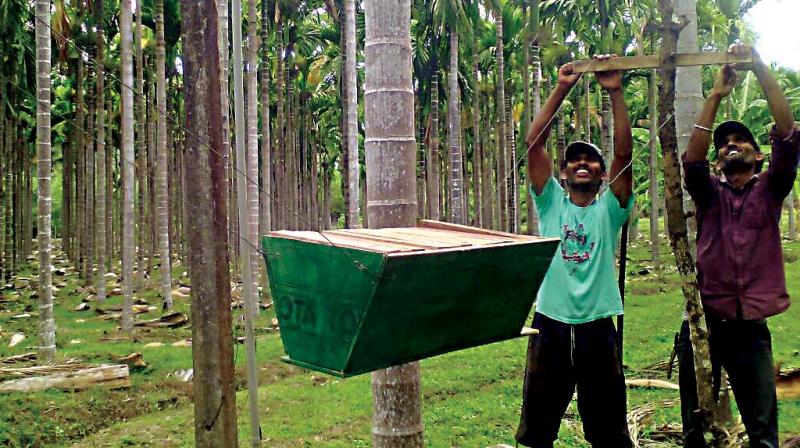Hassan: The honey trap that jumbos cannot resist

Hassan: It's a honey trap with a difference : using bees to beat back elephants raiding crops near the state's forests. While all else appears to have failed to keep the straying jumbos out of fields, it seems the sting of bees is driving them back.
So well have the " beehive fences" of Haliyal and Yellapur forest divisions worked in curbing crop raids by straying elephants that forest officials of Hassan are now readying to install them in the Sakleshpur, Alur and Yeslur ranges, which see the most man-elephant conflict. The work is expected to begin in April.
The fences in question have" bee boxes" tied to a "sting" set 10 meters apart and whenever the elephants try to cross them they come into contact with them, setting the bees in the boxes free , which then begin to attack the jumbos, making them flee.
"Instead of bursting crackers and get the elephants all agitated, beehive fences can drive them back naturally," explains Deputy Conservator for Forests, Hassan, Shivaram Babu
The officer, who has roped in the Wildlife Research Conservation Society, an NGO, to help the department with the beehive fencing in Hassan, says Mr Ravi Bandekar of WRCS believes it can work very well along the Robusta coffee plantations of the district.
To begin with the beehive fencing will be done around 40 fields and plantations, he reveals.
While Haliyal DCF, Ramesh says beehive fencing has been effective in his range, he is not able to tell you if jumbo raids on fields have fallen as a result of it. "We need to do a scientific study on whether it is the buzzing of the bees that drive the elephants away, or their stings," he adds.

